Amed on Bali’s coral-fringed east coast offers spectacular natural beauty
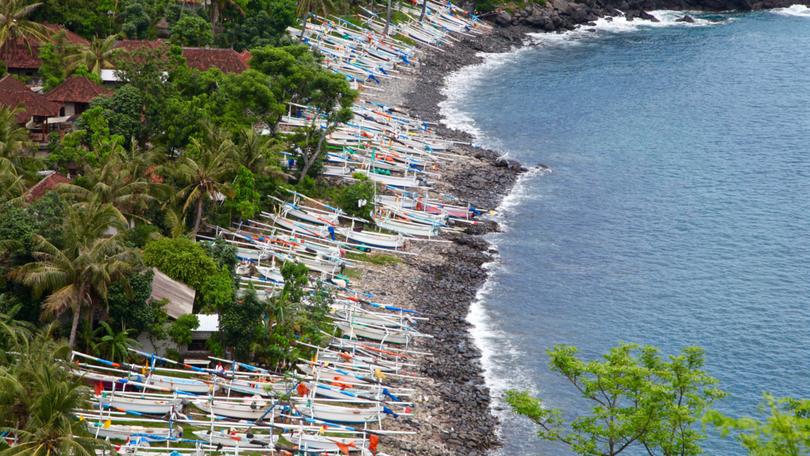
Bali’s popularity as a holiday destination has exploded since the pandemic.
Some social media influencers are saying it’s too popular, complaining over-tourism has turned some of the island’s hotspots into traffic-choked parodies of their former stunning selves.
But in Amed, a string of small, scalloped sandy bays and villages on Bali’s spectacular coral-fringed east coast, the knockout natural beauty Bali is renowned for is said to remain wholly intact.
To find out for myself, I hire a scooter from Kuta near the international airport in Bali and head out on a road trip to the island’s east coast.
ROAM. Landing in your inbox weekly.
A digital-first travel magazine. Premium itineraries and adventures, practical information and exclusive offers for the discerning traveller.
By continuing you agree to our Terms and Privacy Policy.Three hours later I reach Aas, the first of seven fishing villages collectively known as Amed — with Amed being the first village most visitors encounter when arriving from the north.
I take a break at a seaside temple where a group of young men lounging around smoking clove cigarettes regard my arrival as the most exciting thing that’s happened all week.
After exchanging a few pleasantries, I jump back on my scooter and follow a road that ebbed and flowed like a rollercoaster along a jungle-clad coast, passing beaches lined with “jukung” — traditional wooden Indonesian outrigger canoes — until I reach Blue Moon Villas, a small resort set on a clifftop where I’ve booked a room for the night.
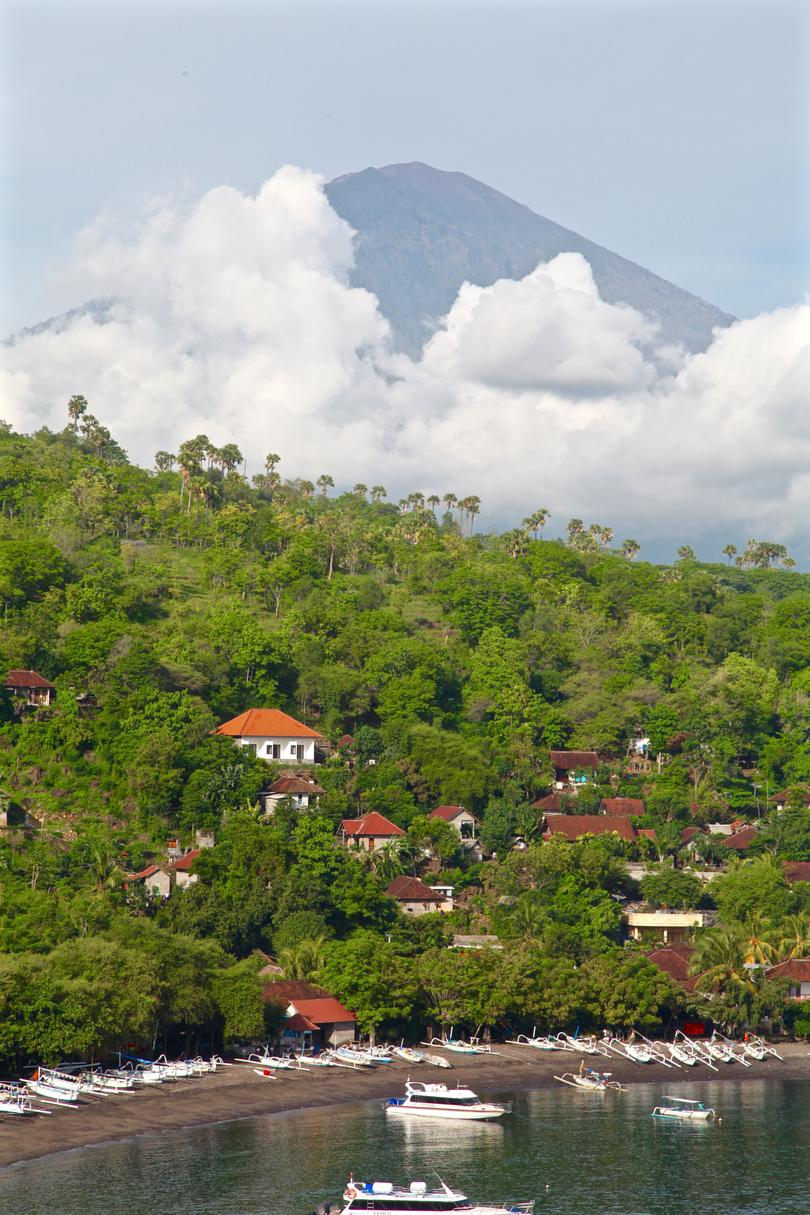
The following morning, I wake at dawn to see two of the most beautiful sights in Bali.
The first is hundreds of jukungs returning to land after spending the night out at sea. The second is the summit of Mount Agung — Bali’s highest and holiest mountain — peeking out through the clouds.
“Amed is a very spiritual place because we’re so close to Mount Agung,” says Komang John, the manager at Blue Moon Villas, pointing at the 3142m stratovolcano that last erupted in 2017.
“If you ride another 10 minutes inland from here you’ll find the village of Bangle, which has five holy springs. We believe this village is a key to the spirit world.”
The road to Bangle winds around rice paddies and past a moss-grown temple before it reaches a village square where local men are gathered for a cockfight. I snap a few pics and then ride on to the end of the road where I park my scooter and follow a foot trail to the springs.
The springs themselves are nothing special — just a series of shallow freshwater pools headlined by a shrine. But the greenbelt setting around it is straight out of the Garden of Eden.
I lie down under a small bamboo shelter where the sound of running water and the barely perceptible hum of the volcano lull me into a short and energising sleep.
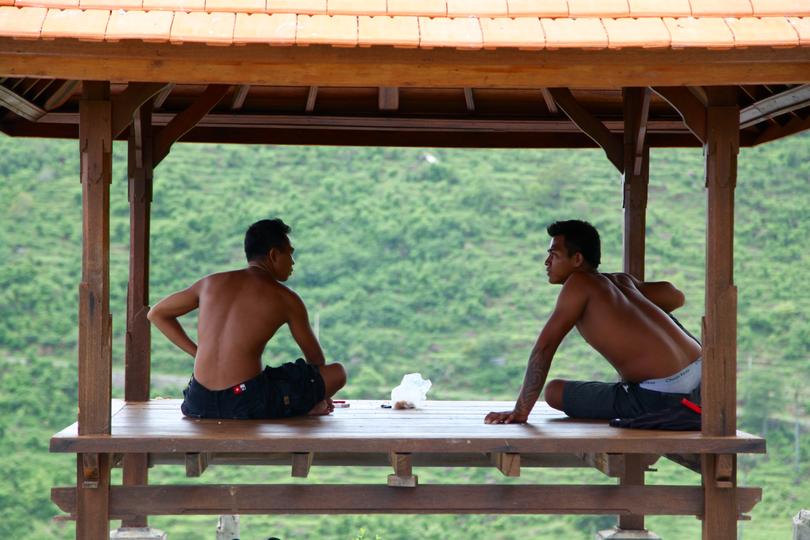
The following day I visit Bali Diversity, a dive shop in Bunutan Village.
“Diving is the main attraction in Amed,” says the co-owner, Marion Mass, of France.
“We also have two of the most accessible World War II shipwrecks on the planet — the USAT Liberty in Tulamben that’s half an hour’s drive to the north, and the Japanese shipwreck at Banyuning Village. You don’t even need scuba gear to see it — all you need is a snorkel and mask.”
Most of Amed’s beaches are volcano-black in colour, and some are bone-white, while the beach at Banyuning is made of smooth little stones.
Walking on them barefoot to reach the waterline isn’t much fun. But the moment I hit the ocean and swim 10m out to the shipwreck, I’m transported into an underwater wonderland worthy of a David Attenborough documentary.
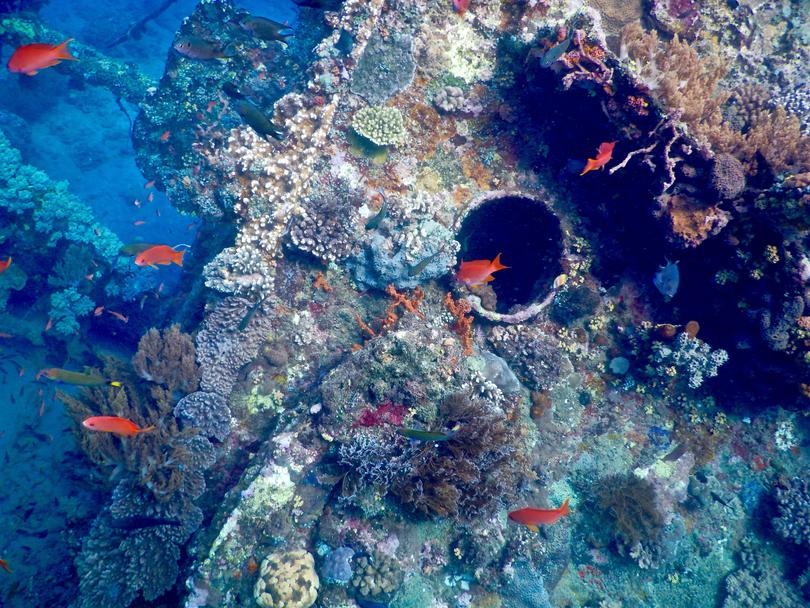
The wreck is covered with hard and soft corals, sponges, sea fans and gregarious feather stars, and is home to a multitude of marine life — clouds of blue trevally that move like a beating heart, scorpion fish, ghost pipefish, bump-head parrotfish, and one very large grouper.
With so much marine life this close to shore, Amed has a stack of great little seafood restaurants. I choose one at random called Sails — a clifftop alfresco restaurant in Bunutan Village with 180-degree ocean views that wouldn’t look out of place in the Greek Islands.
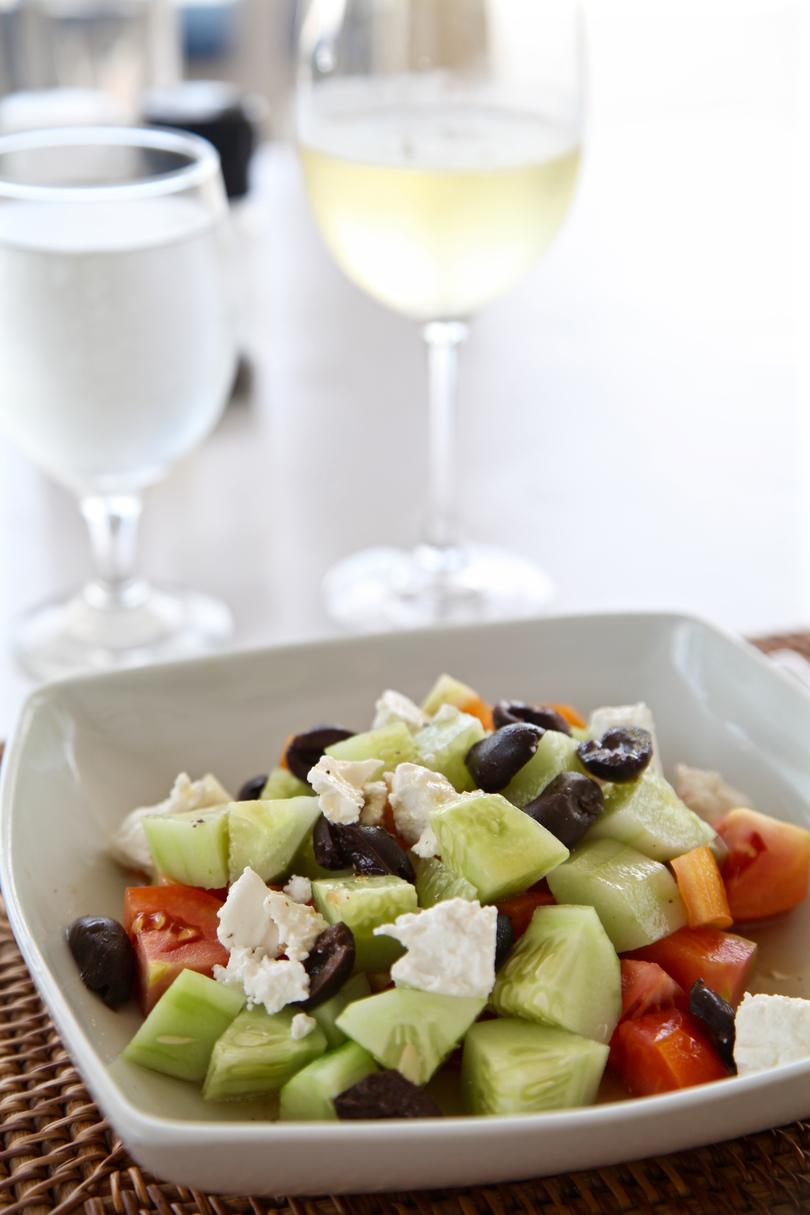
There, I am served a stellar meal: a fresh-as-the-sea-air Greek salad followed by three tender pieces of crumbed mahi mahi served with hand-cut fries and homemade tartare sauce that I wash down with a crisp glass of sauvignon blanc from South Australia.
Yet the best meal I find in Amed is on the coast’s northernmost tip, where I begin my journey back to Kuta. There, I have a traditional pork satay, grilled by an old-timer on the back of a cart parked on the side of the road.
Served on a banana leaf with cubes of congealed rice and a sweet and sour chilli sauce, it costs the equivalent of $1.50. It’s the perfect ending to a perfect weekend on Bali’s still-sleepy east coast.
